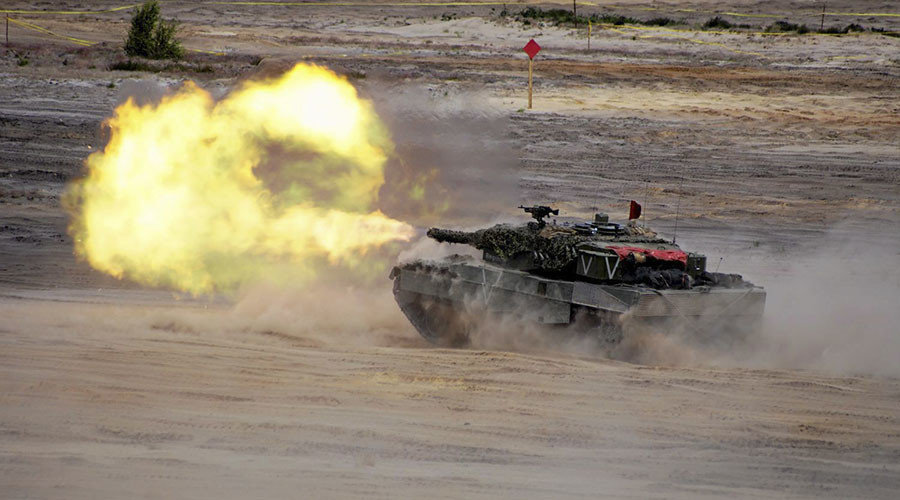
Den vestlige militær alliance var etableret "ikke til at skabe fred, men præcist til aggressive handlinger," sagde Kremlin talsmanden Dmitry Peskov, i mandags. Trods det faktum at den blok som modsatte sig NATO ikke længere eksisisterer, så er det umuligt at ændre alliancens "aggressive natur" grundet dets ideologiske og politiske fundering.
Kommentar: Denne artikel er blot delvis oversat til dansk af sott.net fra: Peskov: The Western military alliance was established not for peace-building, but exactly for aggressive actions
Earlier on Monday, the Times published a report suggesting that "hundreds of thousands of NATO troops will be put on a higher state of alert amid growing tensions with Russia." According to the British daily - which cites the alliance's secretary-general, Jens Stoltenberg, and the UK's outgoing permanent representative to the bloc, Adam Thomson - NATO aims to largely speed up the time its troops can be deployed.
Comment: NATO orders 300,000 troops on high alert, ready to attack Russia for fictional "cyber attacks"
It reportedly aims to have up to 300,000 military personnel from nations across the alliance at the ready, having shortened their response time to about two months, compared to the current 180 days.
"We are responding with the biggest reinforcement of our collective defense since the end of the Cold War," Stoltenberg told the Times. The bloc is looking into how more of its 3 million personnel "can be ready on a shorter notice," he added, saying that NATO defense ministers have already had discussions on the issue.
Having accused Moscow of "assertive" behavior, the NATO chief said Russia had increased its defense spending and was "developing new military capabilities."
"In regard to its national security, Russia acts within its national borders, undoubtedly posing no threat to anyone," Peskov said, commenting on Stoltenberg's statements. The way the military bloc has reacted "once again shows the organization's aggressive nature," he added.



Kommentar: Se også: Peskov: NATO's massive build-up of forces is ridiculous, Russia not threatening anyone